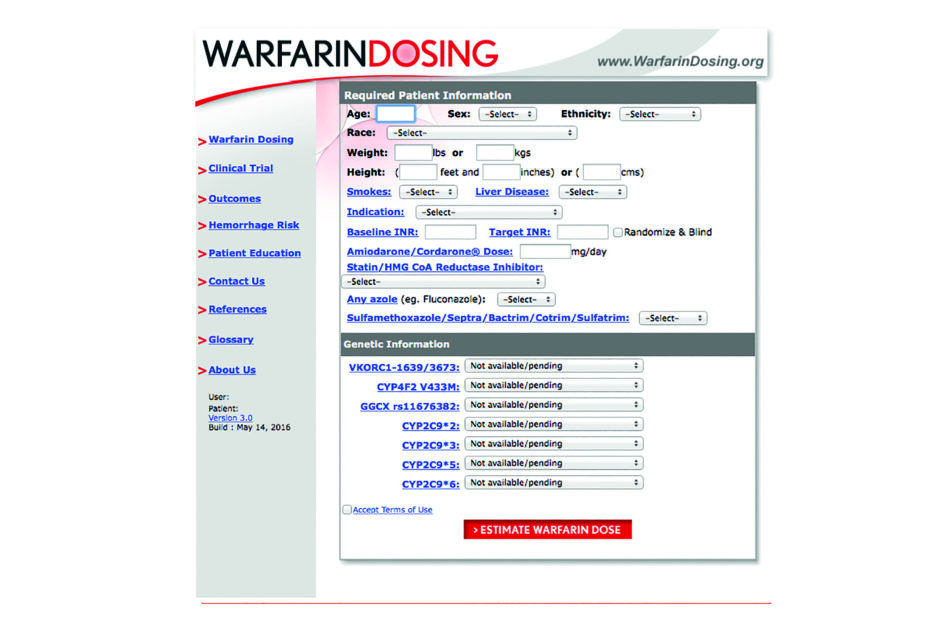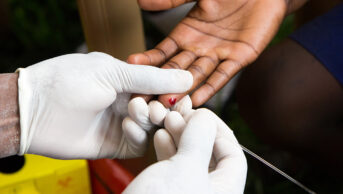
warfarindosing.org
Warfarin is widely prescribed to prevent blood clots that can cause stroke or deep vein thrombosis. However, finding the optimum dose is a challenge and patients need regular monitoring.
Researchers conducted a randomised controlled trial with 1,597 patients aged 65 years or older who were initiating warfarin prior to elective hip or knee replacement. The patients were genotyped for four different polymorphisms that influence warfarin sensitivity, metabolism and vitamin K recycling (CYP2C9*2, CYP2C9*3; VKORC1-1639G>A; and CYP4G2 V433M respectively).
Patients were randomised to receive either clinical dosing or genotype-guided dosing via a web application (www.warfarindosing.org). After 11 days, participants could continue with the dose or make adjustments.
At 30-day follow-up, the researchers found that the rate of adverse events was 14.7% in the clinical arm and 10.8% in the genotype-guided arm, a relative risk reduction of 27.0%.
Presenting at the American College of Cardiology’s 66th Annual Scientific Session on 19 March 2017 in Washington DC, the researchers said their findings provide evidence that genotype-guided dosing improves the safety of warfarin.
References
[1] Gage BF, Bass A, Lin H et al. GIFT of Warfarin: benefit of pharmacogenetic dosing. Presented at American College of Cardiology’s 66th Annual Scientific Session, 17–19 March 2017, Washington DC
You may also be interested in

Pharmacists made 150,000 patient interventions during anticoagulant safety audits, report finds

Some patients switched to edoxaban without being properly informed, pharmacists say
